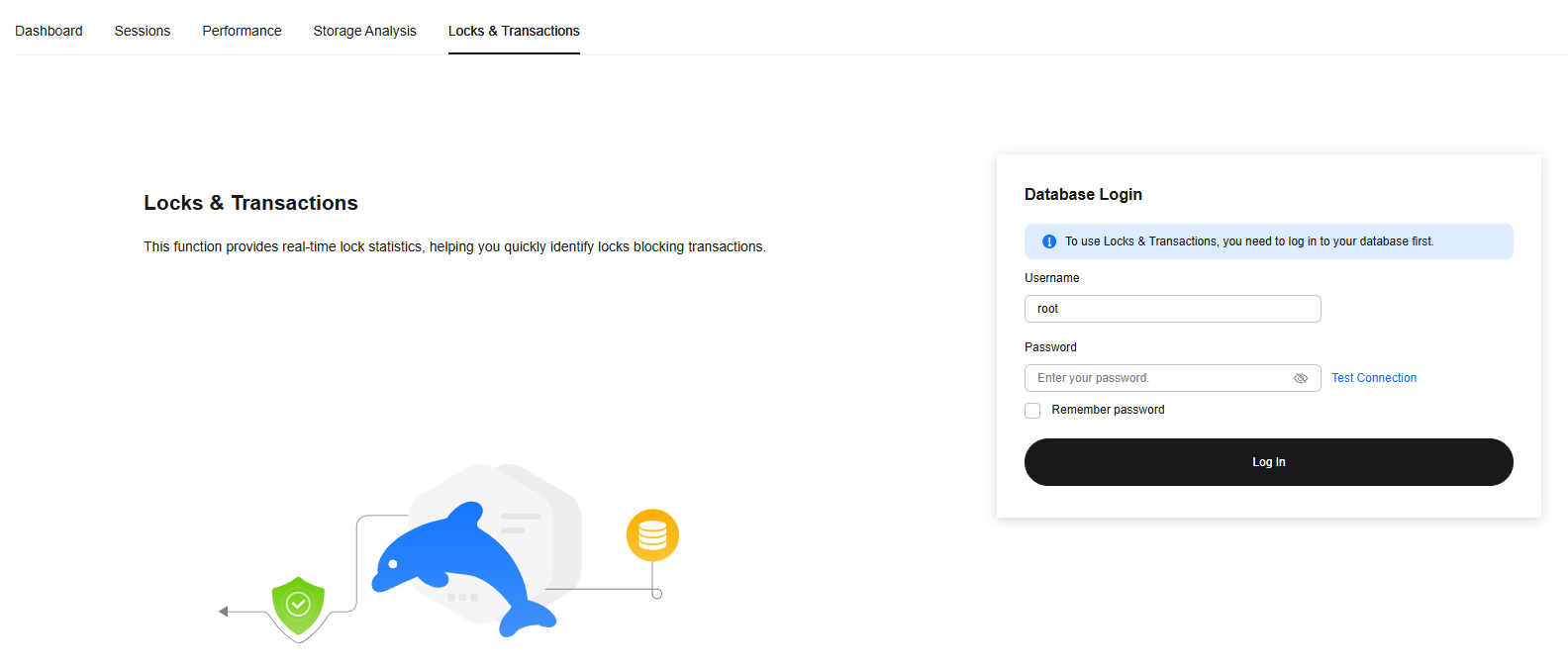Managing Locks and Transactions
Scenarios
DBA Assistant allows you to check whether your DB instance has metadata locks and InnoDB locks. You can also check the recent deadlock analysis and full deadlock analysis.
Functions
|
Function |
Description |
|---|---|
|
Metadata Locks |
Metadata locks (MDLs) are used to ensure consistency between DDL and DML operations. Executing DDL statements on a table generates metadata write locks. If there is a metadata lock, all subsequent SELECT, DML, and DDL operations on the table will be blocked, causing a connection backlog. Metadata locks are displayed in real time. You can quickly identify problems and terminate the sessions with metadata locks to restore blocked operations.
|
|
InnoDB Locks |
InnoDB lock waits generated before DML operations are displayed in real time. You can quickly locate the session waits and blocks that happened when multiple sessions update the same piece of data at the same time, and can terminate the source sessions that hold locks to restore blocked operations.
|
|
Deadlock Analysis |
This function analyzes the latest deadlock log returned by SHOW ENGINE INNODB STATUS. If there have been multiple deadlocks, only the latest deadlock is analyzed. You can only query lock analysis data of the past seven days. |
|
Full Deadlock Analysis |
After this function is enabled, the system regularly examines error logs, extracts deadlock details from them, and conducts a full deadlock analysis.
|
Procedure
- Log in to the TaurusDB console.
- Click
 in the upper left corner and select a region and project.
in the upper left corner and select a region and project. - On the Instances page, click the instance name.
- In the navigation pane, choose DBA Assistant > Real-Time Diagnosis.
- Click the Locks & Transactions tab and enter the administrator password to log in to the instance.
Figure 1 Logging in to an instance

- On the Metadata Locks page, filter the desired metadata locks by session ID, lock status, lock type, and database name.

- Check whether there are any sessions with metadata locks.
If so, select the sessions and click Kill Session.
- On the InnoDB Locks page, check whether there are any lock waits.

- On the Deadlock Analysis page, view the latest lock analysis data. You can click Create Lock Analysis to create a lock analysis data record.

- Enable Full Deadlock Analysis on the Full Deadlock Analysis page and set the innodb_print_all_deadlocks parameter to ON to view the full deadlock analysis data.

Feedback
Was this page helpful?
Provide feedbackThank you very much for your feedback. We will continue working to improve the documentation.See the reply and handling status in My Cloud VOC.
For any further questions, feel free to contact us through the chatbot.
Chatbot





